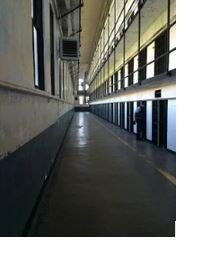 With the spread of coronavirus still a concern in California prisons, the state will now be able to take steps to ease overcrowding, while also expanding opportunities for second chances without increased risk to public safety. The Governor today signed AB 3234 by Assemblymember Phil Ting (D-San Francisco), giving judges the discretion to place first-time misdemeanor offenders in a diversion program. It also makes changes to the elderly parole program.
With the spread of coronavirus still a concern in California prisons, the state will now be able to take steps to ease overcrowding, while also expanding opportunities for second chances without increased risk to public safety. The Governor today signed AB 3234 by Assemblymember Phil Ting (D-San Francisco), giving judges the discretion to place first-time misdemeanor offenders in a diversion program. It also makes changes to the elderly parole program.
“In these times of reflection when the fairness of our criminal justice system is front and center, we can start by offering more compassion and understanding. A second chance is sometimes all someone needs to turn their life around, and when it’s an option, we often get better rehabilitative and reintegration results,” said Ting. “The Governor’s signature on AB 3234 is another step toward criminal justice reform.”
AB 3234 builds off a successful diversion pilot program in Los Angeles County that decreased the number of jury trials by more than 2,000 over a two-year period, saving the courts $12,000 per day, per trial. Additionally, when first-time offenders charged with low-level crimes successfully completed a diversion program, recidivism rates were lower when compared to those who were prosecuted. Graduates who never reoffend will have a clean record when applying for jobs and housing.
Ting’s legislation further eases prison overcrowding by making changes to the Elderly Parole Program. The geriatric population can cost California up to $300,000 per year, per person in medical costs. Currently, inmates are eligible for a parole hearing if they are at least 60 years old and have served a minimum of 25 years. AB 3234 safely lowers the age to 50 and minimum years served to 20. This can be done without great risk to public safety because certain convictions are automatically excluded and fewer than 240 individuals are estimated to be eligible for this expanded review. If just a handful of releases are granted, California would see millions of dollars in cost-savings.
Provisions of AB 3234 were originally introduced as part of budget deliberations and championed by Senator Nancy Skinner (D-Berkeley). “AB 3234 represents another milestone in criminal justice reform. Judges will now have the opportunity to provide a diversion program for misdemeanor charges rather than requiring jail time. AB 3234 also improves the current elderly parole program so that those over age 50 who have been incarcerated for 20 years or more and have low recidivism risk may have the opportunity to return to society and live productive lives,” said Skinner, Chair of the Senate Public Safety policy and budget committees.
AB 3234 takes effect January 1, 2021.
# # # # #